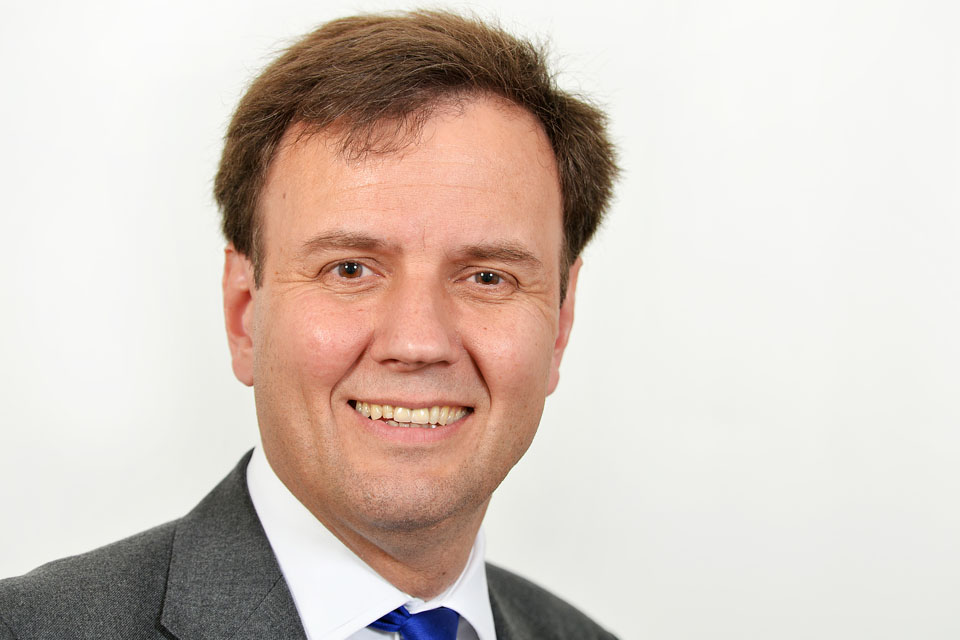Greg Hands: the best and most sustainable way out of poverty is through trade
Minister of State for Trade Policy, Greg Hands, addresses businesses at the Prosperity Fund Business Forum today.

We’re at the cusp of an historic opportunity – and an historic challenge.
According to the World Bank, the last 3 decades have seen the greatest fall in material deprivation in human history.
China is now the world’s second-largest economy – unimaginable 40 years ago.
But there are still enormous challenges to overcome.
Rapid growth cloaks deep deprivation – for the poor, for rural areas, for women, or for minorities.
We have a duty to help ease that poverty. And the best and most sustainable way out of poverty is through trade.
Trade has built unparalleled prosperity. It propelled Britain from poverty in the early-19th century. It is propelling China now. And it will propel the developing world and the world’s poor in the decades to come.
It would be wrong for us to pull up the ladder. The government wants to make sure the benefits of trade are felt by the world’s poorest, and we’re acting right now to make that happen.
On tariffs, the government has committed to providing, as a minimum, the same level of access for developing countries as the EU, and we’re putting legislation through Parliament to let us do that.
That is a minimum – we’ll also look at ways to improve on the EU’s system, by making ours more generous and easy to use.
On trade support, we’re beefing up our emerging market capacity and expertise.
The Department for International Trade now has advisers in 108 countries across the world, including many emerging markets.
I’d like to welcome our recent appointment of the first Trade Commissioner for Africa – Emma Wade-Smith, someone with over 20 years’ experience in trade and diplomacy.
Our £50 billion export financing capacity can now help British businesses trade in over 60 currencies – so those in emerging markets can buy British, but pay local.
And – the reason we’re here today – the Prosperity Fund is a key tool in our armoury.
£1.2 billion, to deliver everything from training government finance officers in Indonesia, to widening access to financial services in Mexico.
From improving public health provision in Brazil to building low carbon economies in South-east Asia. And this could create opportunities for you, too.
Fund programmes are designed to answer stubborn development problems and create business opportunities – growing sectors where the UK has a comparative advantage, removing trade barriers, standardising regulations and improving the legal and business environment.
For example, healthcare is a vital component to any country’s development. Healthy populations live longer and are more productive.
Well, we have world-beating life sciences and pharmaceutical industries, anchored by the NHS and built on our science base – Britain has 4 of the world’s top ten universities, one less than the US.
And no economy can sustain growth without the right infrastructure. The UN estimates that three fifths of the world’s population will live in cities by 2030. Energy, transport, water and communications are vital for private sector investment to stimulate growth.
Yet a great deal of the infrastructure developing countries will need in 20 years has not yet been built.
This is an opportunity for our world-leading architects, urban planners, construction contractors and energy specialists.
And this applies more broadly – we have a stake in helping emerging countries grow.
Better-run economies have better-run companies, and well-functioning legal systems. Well, British lawyers, accountants and consultants have a worldwide reputation.
Faster-growing economies need finance to fuel that growth – the City of London is ranked as the world’s leading financial centre, speaking the global language of business, in the world’s most convenient timezone – particularly for Africa and the Middle East.
Larger economies trade more, in absolute terms - and we’re the world’s fifth-largest exporter.
And as economies develop they spend more on services – we’re the second-largest services exporter.
Better-run economies benefit everyone – more trade for us, more business for you, and a route out of poverty for hundreds of millions overseas.
And the biggest benefits come from freer economies and freer trade.
There is no reason why the plunge in poverty we’ve seen in recent decades should be a one-off – that’s not something we have to accept.
It is by people’s own innovation and endeavour that developing countries can be lifted out of poverty.
Free trade means nothing more than letting that endeavour run free.